Soranib 200mg Tablet 30’ct Imported
Soranib 200mg Tablet 30’ct Imported is a medication primarily used for the treatment of advanced renal cell carcinoma (kidney cancer) and hepatocellular carcinoma (liver cancer). It works by interfering with the growth and spread of cancer cells in the body.The key details about this product are:Composition
The active ingredient in Soranib 200mg Tablet is sorafenib, which is an oral multi-kinase inhibitor drug.Indications
Soranib 200mg Tablet is indicated for the treatment of:
- Advanced renal cell carcinoma (kidney cancer)
- Hepatocellular carcinoma (liver cancer)
>IMPORTENT NOTE… Those customers who belongs to lahore avail the opportunity of cash on delivery(COD) with in 30mints.
> Available on cheap price
> ALL ALTERNATIVES BRANDS ARE AVAILABLE
>ORIGNAL & IMPORTED
> For maore details & price kindly contact on whatsapp.
Original price was: ₨8,000.00.₨6,999.00Current price is: ₨6,999.00.
Description
Soranib 200mg Tablet 30’ct Imported is a medication primarily used for the treatment of advanced renal cell carcinoma (kidney cancer) and hepatocellular carcinoma (liver cancer). It works by interfering with the growth and spread of cancer cells in the body.The key details about this product are:Composition
The active ingredient in Soranib 200mg Tablet is sorafenib, which is an oral multi-kinase inhibitor drug.Indications
Soranib 200mg Tablet is indicated for the treatment of:
- Advanced renal cell carcinoma (kidney cancer)
- Hepatocellular carcinoma (liver cancer)
Dosage
The recommended dosage is one 200mg tablet taken twice daily, with or without food.Packaging
Soranib 200mg Tablet is available in a 30-count imported package.Pricing
The price of Soranib 200mg Tablet 30’ct Imported package ranges from approximately Rs. 8,000 to Rs. 1,935 based on the search results. Composition
The active ingredient in Soranib 200mg Tablet is sorafenib, which is an oral multi-kinase inhibitor drug.Indications
Soranib 200mg Tablet is indicated for the treatment of:
- Advanced renal cell carcinoma (kidney cancer)
- Hepatocellular carcinoma (liver cancer) in patients ineligible for surgery
- Differentiated thyroid carcinoma (thyroid cancer) in patients who are not responsive to radioactive iodine therapy
Dosage
The recommended dosage is one 200mg tablet taken twice daily, with or without food. Patients should swallow the tablets whole and not break, crush or chew them. Packaging
Soranib 200mg Tablet is available in a 30-count imported package. Pricing
The price of Soranib 200mg Tablet 30’ct Imported package ranges from approximately Rs. 1,935 to Rs. 8,000 based on the search results. Safety Considerations
Soranib 200mg Tablet should be used with caution in patients with lung problems, severe liver disease, and during pregnancy and breastfeeding. Patients should avoid alcohol and activities requiring focus during treatment due to potential side effects. Side Effects
Common side effects include nausea, diarrhea, fatigue, rash, and weight loss. Serious side effects can include bleeding, high blood pressure, liver problems, and wound healing issues. Patients should inform their doctor of any side effects. Efficacy in Advanced Hepatocellular Carcinoma (HCC)
- Sorafenib was the first systemic drug approved by the FDA in 2007 for the treatment of unresectable hepatocellular carcinoma (uHCC) .
- Two pivotal phase 3 clinical trials (SHARP and Asia-Pacific) demonstrated that sorafenib significantly improved overall survival (OS) in patients with advanced HCC compared to placebo :
- Median OS was 10.7 months with sorafenib vs 7.9 months with placebo (HR 0.69, p<0.001) .
- Median time to radiological progression was 5.5 months with sorafenib vs 2.8 months with placebo (p<0.001) .
Real-World Effectiveness
- A recent real-world study assessed the clinical effectiveness of sorafenib as first-line therapy in uHCC patients treated at academic and community practices in the US :
- Median progression-free survival (PFS) was 2.9 months and median OS was 8.5 months .
- 77% of patients had disease progression or died during sorafenib therapy .
Limitations
- While sorafenib has shown improved survival compared to placebo in clinical trials, the real-world effectiveness appears more modest, with median PFS and OS less than 3 months and 9 months respectively .
- The search results indicate that newer therapeutic options may provide higher PFS and OS compared to sorafenib in real-world clinical practice .
Key Benefits
- Soranib 200mg Tablet is primarily used for the treatment of:
- Advanced renal cell carcinoma (kidney cancer)
- Advanced hepatocellular carcinoma (liver cancer) in patients ineligible for surgery
- Differentiated thyroid carcinoma (thyroid cancer) in patients not responsive to radioactive iodine therapy
- It works by inhibiting multiple receptor tyrosine kinases, preventing the development of blood vessels in tumor cells and arresting the growth and spread of cancer cells.
Key Ingredients
- The active ingredient in Soranib 200mg Tablet is sorafenib, which is an oral multi-kinase inhibitor drug.
Dosage and Administration
- The recommended dosage is one 200mg tablet taken twice daily, with or without food.
- Patients should swallow the tablets whole and not break, crush or chew them.
Safety Considerations
- Soranib 200mg Tablet should be used with caution in patients with lung problems, severe liver disease, and during pregnancy and breastfeeding.
- Patients should avoid alcohol and activities requiring focus during treatment due to potential side effects.
Side Effects
- Common side effects include nausea, diarrhea, fatigue, rash, and weight loss.
- Serious side effects can include bleeding, high blood pressure, liver problems, and wound healing issues.
Pregnancy and Breastfeeding
- Soranib can harm an unborn baby, so it should not be used during pregnancy. Women should use effective birth control during treatment and for 6 months after the last dose.
- It is unknown if Soranib passes into breast milk, so breastfeeding is not recommended during treatment and for 2 weeks after the last dose.
Liver and Lung Conditions
- Soranib should be used with caution in patients with severe liver disease or certain lung problems. Patients should consult their doctor before use.
Heart and Blood Pressure
- Soranib may cause QT prolongation, which can lead to serious heart rhythm problems. Patients with certain heart conditions are at higher risk.
- Blood pressure should be monitored weekly, especially during the first 6 weeks, as Soranib can increase blood pressure.
Bleeding and Wound Healing
- Soranib can increase the risk of bleeding, so patients with bleeding disorders should use it cautiously.
- It may also impair wound healing, so patients should inform their doctor before any planned surgeries.
Alcohol and Driving
- Alcohol should be avoided as it can worsen side effects like drowsiness and dizziness.
- Patients should avoid driving or operating machinery if they experience any neurological side effects.
Monitoring and Disposal
- Regular blood and urine tests are needed to monitor for side effects.
- Unused medication should be properly disposed of and kept away from children.
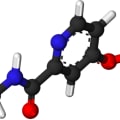 SorafenibKinase inhibitor drug used in cancer treatmentMoreTrade namesNexavar, othersIndicationsPrimary kidney cancer, primary liver cancer, thyroid cancerMechanism of actionProtein kinase inhibitor targeting VEGFR, PDGFR, and RAF kinases
SorafenibKinase inhibitor drug used in cancer treatmentMoreTrade namesNexavar, othersIndicationsPrimary kidney cancer, primary liver cancer, thyroid cancerMechanism of actionProtein kinase inhibitor targeting VEGFR, PDGFR, and RAF kinasesBased on the search results, the key information about the mechanism of action of Soranib (sorafenib) is:Mechanism of Action
- Soranib (sorafenib) is a multi-kinase inhibitor that works by blocking the activity of several receptor tyrosine kinases (RTKs) involved in tumor cell proliferation and angiogenesis (blood vessel formation).
- The key targets of sorafenib include:
- Vascular endothelial growth factor receptors (VEGFR-1, VEGFR-2, VEGFR-3)
- Platelet-derived growth factor receptor-β (PDGFR-β)
- Raf kinases (C-RAF and B-RAF)
- FLT-3
- RET
- c-KIT
- By inhibiting these RTKs, sorafenib:
- Blocks the signaling pathways that promote tumor cell proliferation, survival, and angiogenesis.
- Disrupts the formation of new blood vessels that feed the tumor, thereby starving the cancer cells of oxygen and nutrients.
- Induces apoptosis (programmed cell death) in tumor cells.
- The inhibition of the Raf/MEK/ERK signaling cascade, which is dysregulated in many cancers, is considered a key mechanism by which sorafenib exerts its anti-tumor effects.
Chemical Structure
- The chemical formula of sorafenib is C21H16ClF3N4O3.
- Sorafenib is a bi-aryl urea compound, containing a 1,3-disubstituted urea structure.
- The molecular structure includes:
- A chloro-trifluoromethyl-phenyl group
- A pyridine-2-carboxamide group
- A 4-chlorophenoxy group
Structural Features
- Sorafenib is a relatively large, lipophilic molecule with a molecular weight of 464.83 g/mol.
- It contains 4 aromatic rings, 3 fluorine atoms, 1 chlorine atom, and multiple polar functional groups.
- The 1,3-disubstituted urea structure is considered important for sorafenib’s multi-kinase inhibitory activity.
Physicochemical Properties
- Sorafenib has low aqueous solubility, with a predicted water solubility of only 0.00152 mg/mL.
- It has a high lipophilicity, with a predicted logP value around 4.
- The compound is relatively stable, with a melting point around 202-204°C.


Sorafenib is synthesized through the following key steps:
- Preparation of 4-(4-aminophenoxy)-N-methylpicolinamide, which is a key intermediate for Sorafenib. This involves:
- Reaction of 4-chloro-N-methylpicolinamide with 4-aminophenol in the presence of a base like potassium carbonate and potassium tert-butoxide.
- Reaction of the 4-(4-aminophenoxy)-N-methylpicolinamide intermediate with phenyl 4-chloro-3-(trifluoromethyl)phenyl carbamate to install the main urea functionality.
- The carbamate is prepared using a water-assisted synthesis method.
- An alternative synthesis involves the reaction of 4-chloro-3-(trifluoromethyl)phenyl isocyanate with 4-(4-aminophenoxy)-N-methylpicolinamide in DMF at room temperature to directly form the urea.
- The compounds 21 and 22 were also synthesized starting from picolinic acid according to the procedure used for the preparation of Sorafenib.
The key advantages of these improved synthetic routes are:
- Avoidance of the use of inert atmosphere and excess bases
- Improved scalability and yields compared to previous methods
- Purity of Sorafenib obtained is >99%
Dosage
- The recommended dosage of Soranib (sorafenib) is one 200mg tablet taken twice daily, with or without food.
- Patients should swallow the tablets whole and not break, crush or chew them.
- Dosage may be adjusted by the doctor based on the patient’s response and tolerability.
Storage
- Soranib 200mg Tablets should be stored at room temperature, away from heat, moisture, and direct light.
- The medication should be kept in a closed container.
- It should be kept out of the reach of children.
Reviews
The search results do not provide any specific patient reviews or feedback on Soranib 200mg Tablet. However, some general points about the medication can be made:- Sorafenib, the active ingredient in Soranib, is an established treatment for advanced kidney, liver, and thyroid cancers.
- Clinical trials have shown sorafenib can improve overall survival and delay disease progression in these cancer types compared to placebo.
- However, the real-world effectiveness may be more modest, with median progression-free survival and overall survival less than seen in clinical studies.
- Soranib/sorafenib can have significant side effects that require close monitoring by healthcare providers.

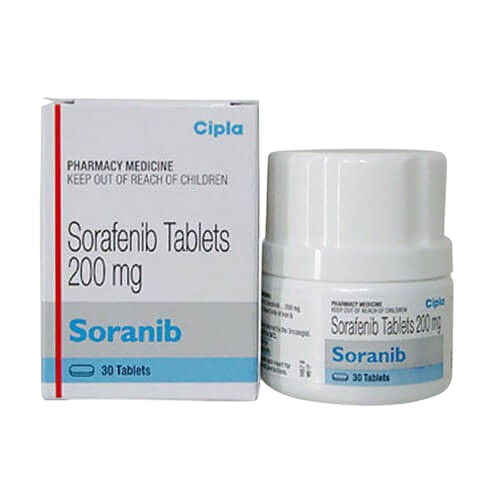

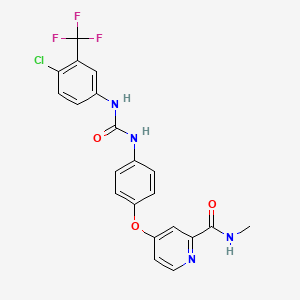

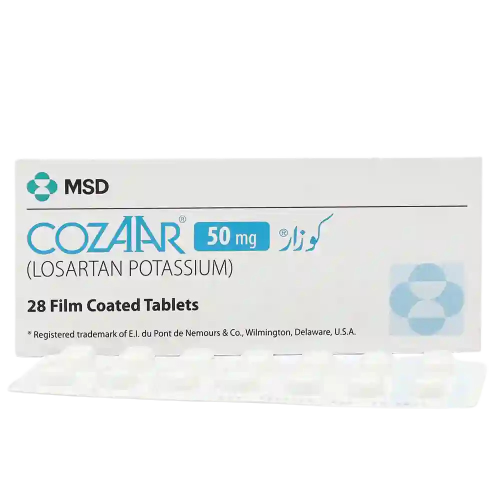
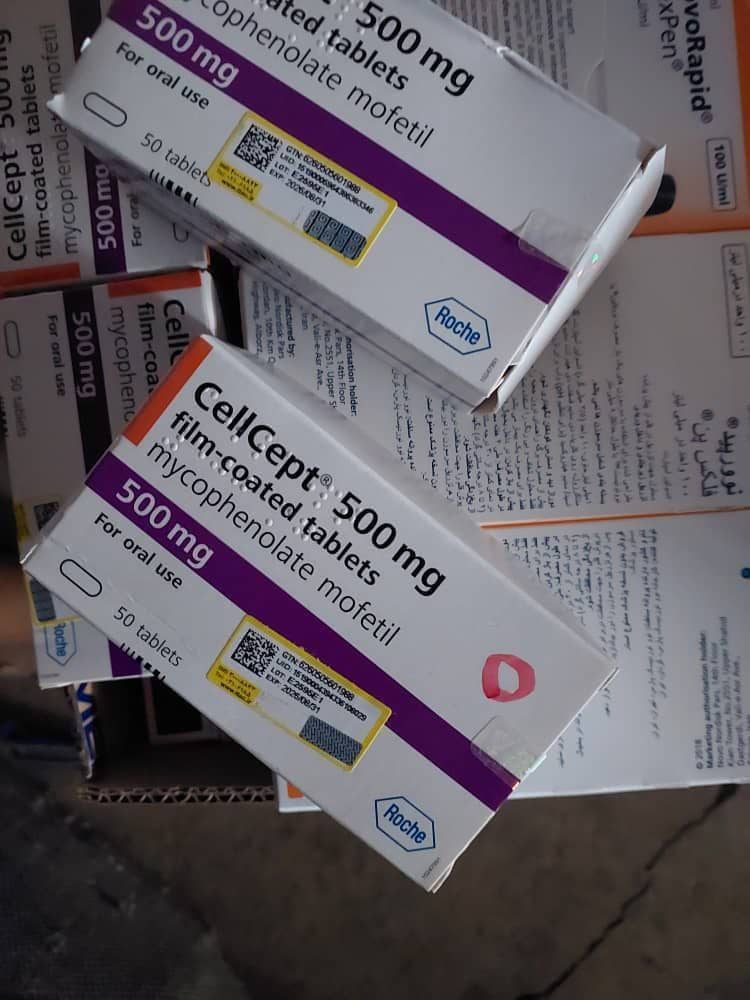
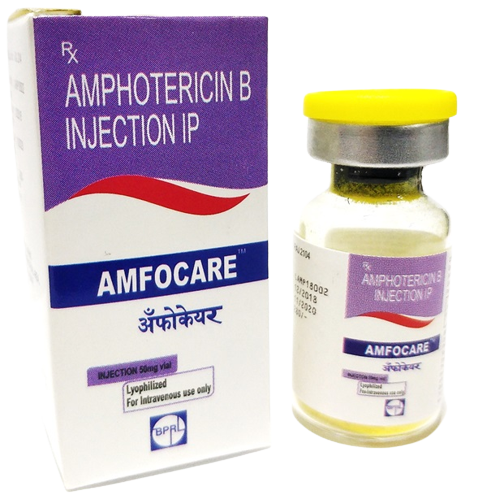

Reviews
There are no reviews yet.